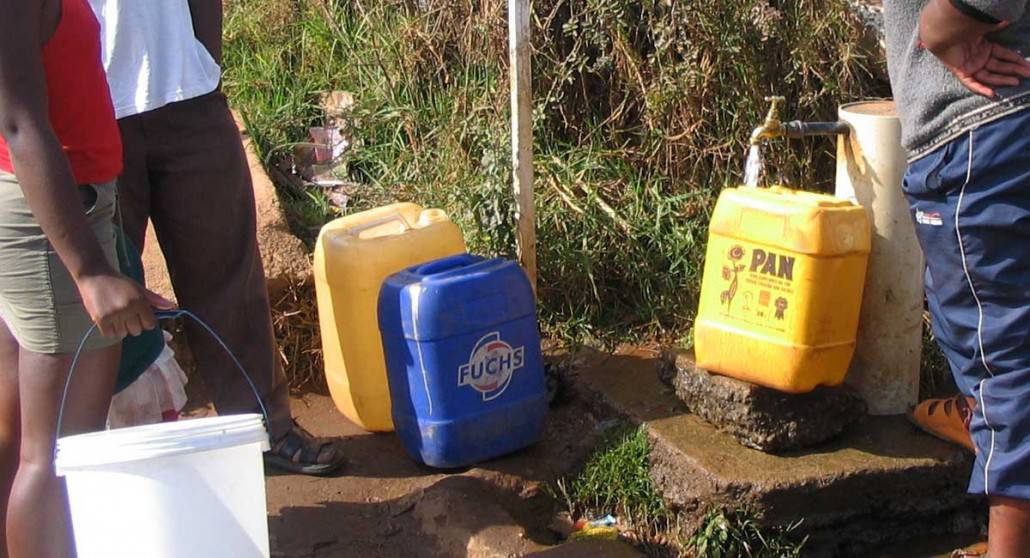Corruption in the water and sanitation sector in South Africa has put the water security of businesses and households, and indeed the entire country, at risk. The impacts are severe.
Corruption Watch and the Water Integrity Network today released an important report, Money down the Drain: Corruption in South Africa’s water sector, which examines the extent and drivers of corruption in the water and sanitation sector and makes recommendations on actions to be taken to address such corruption and maladministration.
The report highlights the extent to which corruption has become systemic, involving all levels of society, and rife in both the public and private sectors. So while formal rules, policies and laws appear to be in place, in reality, informal rules prevail.
The report describes a number of cases drawing on various sources including reports by the media, the Auditor-General, and the Special Investigating Unit which reveal the involvement of a vast array of players, from plumbers, tanker drivers and senior officials, to mayors to ministers, and the many private businesses that benefited richly from corruption, and in some cases, actively promoted it.
Many of these projects and the systemic corruption that ensued flourished under the stewardship of former minister of water and sanitation Nomvula Mokonyane (2014-2018). But it is important to note that problems in the sector existed even prior to Mokonyane’s tenure, as investigations into criminal cases were underway from that time, to the tune of R50-million. However, by the time Mokonyane left her post, irregular expenditure had ballooned to well over R4-billion with new cases being uncovered.
Although the behavior of public sector officials and politicians comes under particular scrutiny, the report also makes clear how the actions of private individuals and businesses, who deliberately exploit weaknesses in the public sector, have an acute impact on water security and on the human right to water. Some companies have actively created conditions which serve their own ends, and in which corruption flourishes.
Other abuses have occurred in areas as mundane as the provision of portable chemical toilets, a form of sanitation service to poor communities which is a frequent focus of tender and procurement irregularities. Similarly, in the awarding of mining licenses, managing water pollution and water abstraction, private interests frequently prevail over those of the communities, especially when public officials with the power to control these issues are complicit.
The three broad areas of corruption are characterised in the report. These begin with the manipulation of procurement and operational processes. But as corruption spreads, it extends to influencing policy and regulatory decisions and, finally, to taking control of key institutions. The study unpacks some of the strategies observed in the cases presented, following this characterisation.
Key strategies include the abuse of procurement processes, either through the manipulation of tender processes and requirements, or through the abuse, for example, of pre-qualification processes, emergency provisions, so-called ‘piggy-backing’ of suspect tender, and the manipulation of appointment of services providers through carefully crafted panel processes. The abuse of ministerial directives to water boards, at the root of some of the largest abuses, is also highlighted.
What this shows is that supply chain management procedures that are intended to enable the state to work more efficiently are often abused to open doors for corruption.
This suggests that the much-lamented lack of institutional capacity in many water sector institutions is the result of deliberate institutional weakening in order to facilitate corruption. It is notable that between 2009 and 2015 the average term of office of the director-general in the Department of Water and Sanitation was only 11 months. Coupled with this are deliberate attempts to weaken mechanisms for oversight of institutional performance, thus clearing the way for the removal of constraints on illicit behaviour.
The report presents a set of recommendations that encompass an overarching strategic approach, and drill down into more specific interventions. These include:
- Designating the water sector as an ‘island of integrity’;
- Ending impunity and instilling a culture of consequences;
- Ensuring the appointment of honest, ethical and committed leaders to run key institutions;
- Improving and strengthening procurement systems and practices, as outlined in the National Development Plan, including integrity pacts, e-procurement, open contracting data standards, and red flag monitoring;
- Facilitating transparency in regulatory decisions;
- Addressing broader environmental factors; and
- supporting the media and civil society to uncover corrupt activities and pursue them until appropriate remedial action is taken.
Corruption in the water sector must be tackled. The health of people, young and old, depends on access to a safe and reliable water supply and sanitation services. The country’s economy and people’s livelihoods are equally dependent on water – so we cannot allow water management to be undermined. This is why the scourge of corruption in the water sector must be eliminated both as part of broader anti-corruption campaigns and, as important, as part of the process of ensuring water security for our country.
For media enquiries contact:
Phemelo Khaas 083 763 3472 PhemeloK@corruptionwatch.org.za

